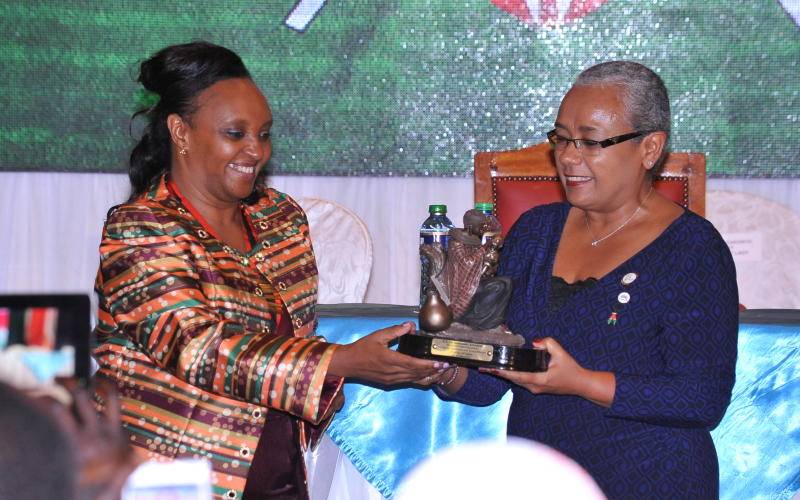×
The Standard e-Paper
Smart Minds Choose Us

Chairperson of Kenya Obstetrical and Gynecological Society (KOGS) Dr Anne Kihara hands over a gift to First Lady Margaret Kenyatta during the official opening of the 1st African Federation of Obstetricians and Gynecologists (AFOG) regional Congress and 39th KOGS Conference in Nairobi.
The beginning was stormy but she overcame her troubles.